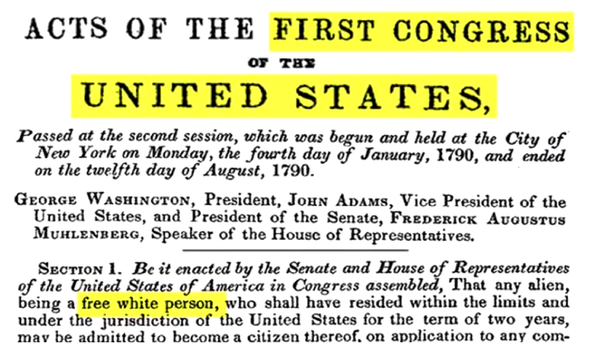The Force of True Religion
We have observed over the last sixty or so years the creation of a new confession. In truth, it is a new religion, but it has retained the name and, in some cases, the external appearance of Christianity.

There exist five forces that govern the lives of men: the political, the religious, the cultural, the social, and the personal. I do not here intend to go into all five of these; instead, I will focus on the first two. Politics is the art of rewarding friends, punishing enemies, and maintaining order; religion is the translation of the Moral Law into moral warrants for action and the transposition of moral claims or truths into cultural traditions and personal habits. These can be in tension, but are neither inherently nor inevitably at odds.
There is, of course, a great deal of overlap in these matters, but there are also exclusive “spheres of influence” and tools that belong to one force alone. The most obvious of these is violence, for the political alone may rightly wield the sword. All violence is political. Not all violence is morally justified (properly a religious question), but an action need not be morally justified to be political.1 Thus, the earlier assertion that part of the political is punishing enemies could just as easily—and, more importantly, just as accurately—be rendered instead as applying violence to enemies. Any ideology that eschews (or, worse, condemns) violence is inherently not political, but may very much still be an enemy of the political, or of the other forces.
The religious has no right to exercise violence. If the religious wishes to see violence done, then it must appeal to or petition the political, for only the political wields the sword. The tools of the religious are reason, shame, and guilt, and it shares these tools with the other forces (although not all of these tools are shared with all of the other forces); it may employ these when interacting with the political. And yet, when interacting with the political, the religious would do well to recognize that the political is not so limited; the prince need neither yield to nor stop at reasoned arguments or structured debates—he answers a higher call.
Ultimately, however, all violence is religious. A man will not kill for anything except that which he holds as a tenet of his religion. We do not, of course, speak here of those men who, being so degenerate and depraved, are such in name only; certainly, animals2 will resort to violence over the basic drives and their demands, but men will not do so (with some exceptions for certain of the drives in extremis). We speak only of those who are capable of reason. If a man is categorically unwilling to kill for something, then that thing is not part of his religion. Few men would kill over their favorite flavor of ice cream, for few men have ice cream as a tenet of their religion; all men would kill to preserve the virtue of their wives or daughters, for all men have family as a tenet of their religion. The political may have exclusive right (and, naturally, duty) to exercise violence, but the political does not provide its own warrant—the enemy must first be identified—before the political can seek to destroy him. The religious provides this identification.
Thus, necessarily, that for which a man is willing to kill is a tenet of his actual religion. What a man may profess (all too often) means rather little; what a man will lift the sword to defend3 is what he truly believes. And do not make the sophomoric error of believing that there are meaningful gradations of violence: When I say kill, I mean kill, for any resort to violence is moral acceptance of the very real possibility that there may be an escalation, and all escalation risks death. There exists no law that is not ultimately backed by the threat that the one who transgresses such law may be handed over to Master Hans. Something as trivial as jaywalking may eventuate, via any of a number of routes, in the death of the transgressor, at least if he does not yield.
In the case of the churches, this means that anything over which the enforcement of the political4 is sought is a tenet of the religion of those churches. A church that would have you arrested, unpersoned, or otherwise harmed for failing to affirm some historical (real or imagined) event holds belief in that historical event as a tenet of the religion it professes. We all know this to be true: As Christians, we would certainly not welcome a man who professed unbelief in Christ’s resurrection (and was disruptive with regard to that belief). Christ’s resurrection is a tenet of our confession, and we are willing to petition the political to employ violence to expel any who (disruptively, at least) claim otherwise. We do not treat most historical events in this way, for most historical events are not ultimately relevant to our religion. No church would expel you over your beliefs about Napoleon Bonaparte’s height (average for his day), Fidel Castro’s favorite food (milkshakes), or the origin of Kaiserschmarrn (debated); and yet there are a handful of historical events—irrelevant historical events —over which many modern churches will expel you if you hold “unorthodox” views. There are millions of men and women warming pews every Sunday who hold views that are directly contrary to clear, even core, teachings of the Christian faith, and yet these men and women are not expelled. Millions who believe abortion is morally permissible (high-handed violation of the Fifth Commandment5); millions who believe in Darwinian Evolution (high-handed denial of God’s clear words in Genesis); millions who believe men can become women and vice versa (high-handed rejection of both Genesis and the clear words of Christ: “man and woman he created them”); and tens of millions who believe the Church is not the true Israel. Believe any of these and you will not only not be asked to leave (and you certainly will not be escorted out by police officers), but you will probably not even be asked to repent. But see what happens when you start doing math with ovens and pizzas.
We have observed over the last sixty or so years the creation of a new confession. In truth, it is a new religion, but it has retained the name and, in some cases, the external appearance of Christianity. It does not defend the historical faith delivered once for all to the saints, for it long ago abandoned those tenets and that religion. It claims the name of Jesus Christ, certainly, but so do the Mormon “Church” and even the Muslims (to some degree). We would never contend that the Mormon or the Mohammedan religion can save, and yet men decline—neglect—to extend this logic to modern churches that are every bit as apostate and are worse than atheists, for at least atheists do not often invoke the name of Jesus to mask their religion. A saving faith must be in the Jesus Christ of the Scriptures, not in the “Jesus” of the Post-War Consensus and the New Global Religion. Of a certainty, felicitous inconsistency will save some, but just as certainly, not all.
In nature, there are a number of parasites that so completely take over the host that they effectively use it as a puppet. This is also the stuff of myth and legend and story. There is a sort of uncanny valley, as between the behavior of the true creature and the behavior of the mimicking parasite, but the act is never good enough to fool careful and capable observers. We see, in the pages of Scripture, a rather similar sort of puppeteering: demonic possession. When a demon possesses a man, it speaks by man’s voice, but not with man’s voice; it appears to be a man, but does not behave like a man, and it looks through man’s eyes, but does not see with them. Many modern churches are, in essence, demoniacs: They look like Christ’s bride, but do not behave like her; they speak as if they were Christ’s bride, but do not sound like her; they make (sometimes grand) claims of being Christ’s bride, but do not submit like her. In fact, when confronted with the historical faith and the truth of Scripture, they often recoil just as the demoniacs did from Christ: What have we to do with you, Son of God? The demoniac does not pass as human for the careful observer, because he no longer is; the modern churches do not pass as Christian for the man with the gift of spiritual discernment, because they no longer are. The religious may be easy to identify, for, as stated above, a man will kill for his religion, but identifying a belief as a tenet of a man’s religion does not identify the religion itself—for that, you must know the tenets of the Christian religion, as anything not among those must necessarily belong to a competing religion. The Christian religion does, indeed, make historical claims—the creation of all things by God, the birth of Christ, the death of Christ, the resurrection of Christ—and these are tenets worth defending, but the Christian religion makes no historical claims about the overwhelming majority of history—how many died in the Thirty Years’ War, the genocide (or politicide) in Rwanda, the war crimes of any particular leader or ruler (save those specifically mentioned in Scripture). A Christian may care—passionately, even—about history that does not rise to the level of the religious, but he may not and will not exclude you from fellowship over it, because that would be to elevate it to the level of religious tenet, and to profess a different religion that has a different creed.
What a man claims (perhaps more true when done publicly) may give some indication or provide some insight, but a man’s true confession—his true religion—will always bear out in his actions: What will he defend with the sword? Modern churches will never eject you or petition the political in defense of Jesus Christ, at least not the Jesus Christ of Scripture, but they will happily—earnestly, even—destroy your life or see you murdered in defense of their true religion, even going so far as to blasphemously invoke the name of Jesus to attempt to baptize their sins and lead even more men astray. Satan can appear as an angel of light and even whores can wear white. It is a false faith that professes a false creed and produces wicked works. Let us heed and apply the words (even the possible sarcasm) of James:
Show me your “faith” apart from your works, and I will show you my faith by my works.
Lex orandi, lex credendi, lex vivendi.
Footnotes
- Whether or not a political action is morally justified is a question of whether or not such action is ideal.
- Some animals are actually more hesitant to resort to violence than some humans, which certainly implies something about the possible depths of human depravity.
- Or, more often, advocate that other, braver men take up the sword to defend.
- For example, calling the police to have a perceived transgressor barred or removed.
- Lutheran numbering.
Profiting from the content? Donate to the Cause.
Help us reach our monthly giving goal.






